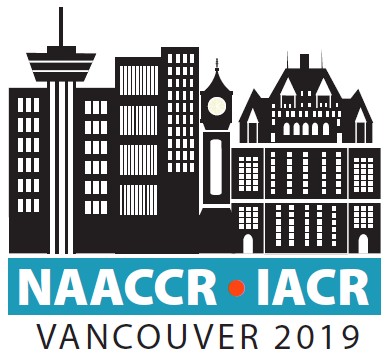2019 Vancouver - the Combined Scientific Conference of IACR and NAACCR

2019 Vancouver: the Combined Scientific Conference of NAACCR and IACR
June 9-13, 2019
The combined conference of North American Association of Central Cancer Registries (NAACCR) and IACR (International Association of Cancer Registries) for 2019 is a unique opportunity for professionals to network with colleagues conducting similar work globally. The conference is taking place June 9 - 13, 2019, in Vancouver, British Columbia, Canada.
The conference programme is available here: https://www.naaccr.org/naaccr-iacr2019/#program
Topics:
Epidemiologic Studies Using Cancer Surveillance Data
- Descriptive Epidemiology
- Cohort Studies
- Survival Studies
- Cancer in special populations
- Cancer in populations around the world
Cancers with changing or unusual patterns New Directions
Visioning the future of cancer surveillance
- Tissue repositories, biomarkers, prognostic factors
- Technologic and scientific advances and innovations
- New and emerging methods of data collection
Data collection in rural and remote areas Tools for Cancer Registries
Statistical tools and methods
- Estimating prevalence
- Data visualization tools
- Trends, projections, and estimating cancer burden
Innovative analytical methods Childhood Cancers
Staging system
- Surveillance issues specific to children
Epidemiology Challenges & Solutions in Data Management
Using ancillary systems for core data management
- Maintaining privacy & confidentiality
- Variables for core cancer dataset
Transitioning to XML Advanced Data Collection
Updates on international staging systems
- Collection of recurrence and progression data
Collection of Treatment data Data Collection and Operations
Data quality, control, & standards
- Innovative data collection and/or consolidation
Overcoming issues with data sharing Cancer Control
Targeting populations for intervention
- Approaches for estimating cancer burden
- Using registry data in a clinical setting
- Obesity, HPV, or tobacco-associated cancers



